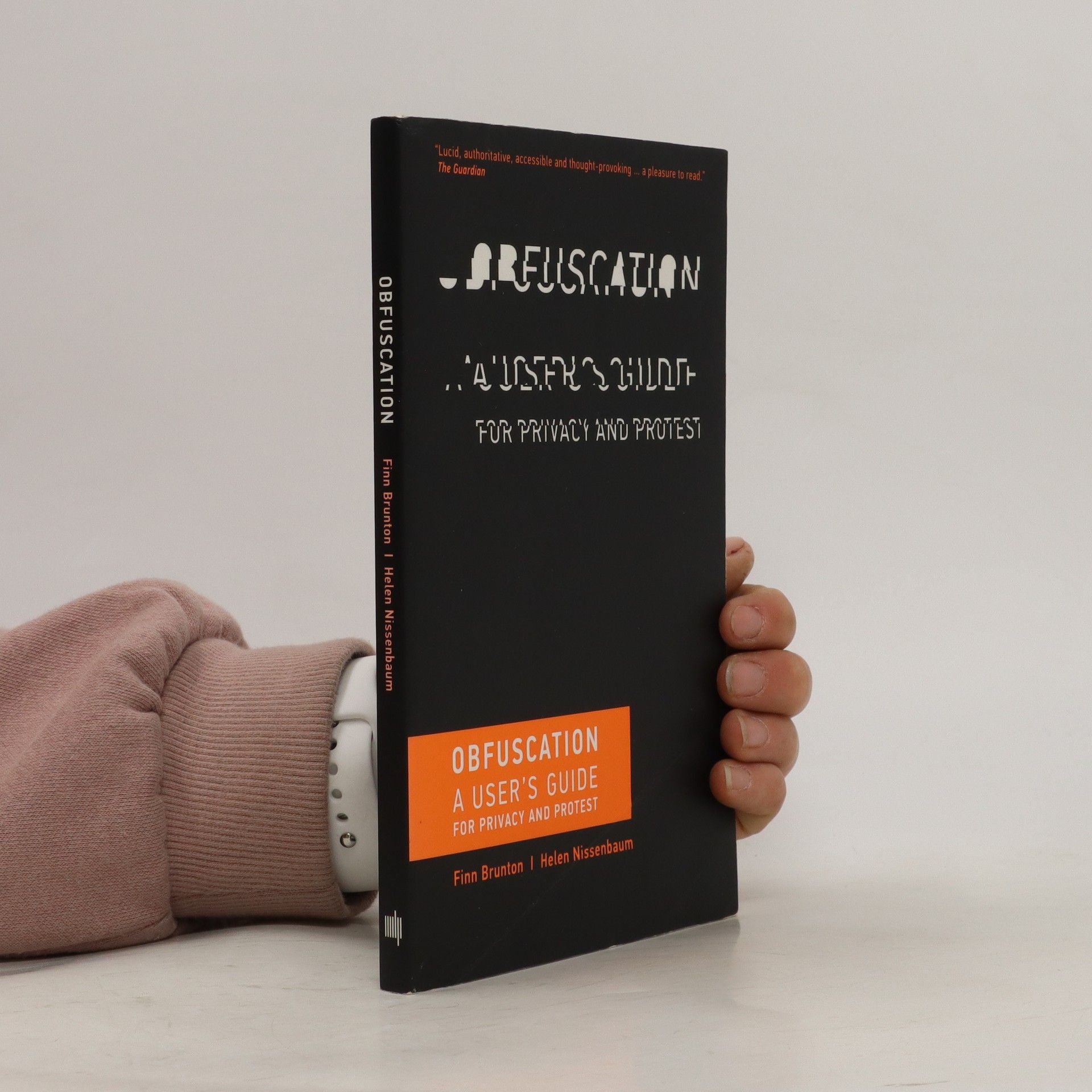Exploring the phenomenon of spam, this book delves into its mechanisms and effects on online communities and the broader Internet landscape. It examines the evolution of spam, its various forms, and the ways it influences user experience and digital communication. Through detailed analysis, the book highlights the challenges spam presents and its implications for the future of online interactions.
Finn Brunton Libri
Finn Brunton approfondisce le storie nascoste di internet e delle tecnologie che plasmano la nostra comunicazione. Il suo lavoro esplora le forze invisibili e le narrazioni inaspettate dell'era digitale, rivelando come vengono manipolate le informazioni e la privacy e come questi sistemi possano essere riproposti per la protesta e la resilienza. La scrittura di Brunton offre una lente acuta sugli aspetti invisibili della nostra esistenza connessa.




Finn Brunton and Helen Nissenbaum aim to spark a revolution against pervasive digital surveillance by advocating for obfuscation—the intentional use of ambiguous or misleading information to disrupt data collection by governments, corporations, and hackers. They provide a toolkit of privacy-protecting techniques, emphasizing the importance of evasion and noncompliance, particularly for average users who lack control over their data. By teaching users to resist surveillance, guiding software developers to protect user data, and advising policymakers on ethical data collection, they empower individuals to push back against invasive practices. The authors detail various forms of obfuscation, illustrating its application with historical and contemporary examples, such as World War II radar chaff and Twitter bots that undermined protest movements. They explore the necessity and justification of obfuscation, its mechanisms, and its integration with other privacy practices and technologies. This comprehensive guide aims to equip readers with the knowledge to navigate and challenge the complexities of digital surveillance effectively.
Obfuscation - A User`s Guide for Privacy and Protest
- 123pagine
- 5 ore di lettura
With Obfuscation, Finn Brunton and Helen Nissenbaum mean to start a revolution. They are calling us not to the barricades but to our computers, offering us ways to fight today's pervasive digital surveillance -- the collection of our data by governments, corporations, advertisers, and hackers. To the toolkit of privacy protecting techniques and projects, they propose adding obfuscation: the deliberate use of ambiguous, confusing, or misleading information to interfere with surveillance and data collection projects. Brunton and Nissenbaum provide tools and a rationale for evasion, noncompliance, refusal, even sabotage -- especially for average users, those of us not in a position to opt out or exert control over data about ourselves. Obfuscation will teach users to push back, software developers to keep their user data safe, and policy makers to gather data without misusing it. --Publisher
Digital Cash
- 272pagine
- 10 ore di lettura
The fascinating untold story of digital cash and its creators—from experiments in the 1970s to the mania over Bitcoin and other cryptocurrencies Bitcoin may appear to be a revolutionary form of digital cash without precedent or prehistory. In fact, it is only the best-known recent experiment in a long line of similar efforts going back to the 1970s. But the story behind cryptocurrencies like Bitcoin and its blockchain technology has largely been untold—until now. In Digital Cash, Finn Brunton reveals how technological utopians and political radicals created experimental money to bring about their visions of the future: to protect privacy, bring down governments, prepare for apocalypse, or launch a civilization of innovation and abundance that would make its creators immortal. Filled with marvelous characters, stories, and ideas, Digital Cash is an engaging and accessible account of the strange origins and remarkable technologies behind today's cryptocurrency explosion.